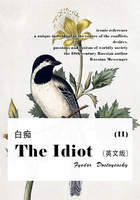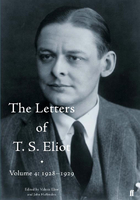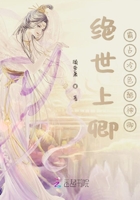THE CREATION ACCORDING TO GENESIS
(a) When God set out to create Heaven and Earth, He found nothing around Him but Tohu and Bohu, namely Chaos and Emptiness. The face of the Deep, over which His Spirit hovered, was clothed in darkness.
On the first day of Creation, therefore, He said: 'Let there be light!', and light appeared.
On the second day, He made a firmament to divide the Upper Waters from the Lower Waters, and named it 'Heaven'.
On the third day, He assembled the Lower Waters in one place and let dry land emerge. After naming the dry land 'Earth', and the assembled waters 'Sea', He told Earth to bring forth grass and herbs and trees.
On the fourth day, He created the sun, moon and stars.
On the fifth day, the sea-beasts, fish and birds.
On the sixth day, the land-beasts, creeping things and mankind.
On the seventh day, satisfied with His work, He rested.[1]
(b) But some say that after creating Earth and Heaven, God caused a mist to moisten the dry land so that grasses and herbs could spring up. Next, He made a garden in Eden, also a man named Adam to be its overseer, and planted it with trees. He then created all beasts, birds, creeping things; and lastly woman.[2]
***
1. For many centuries, Jewish and Christian theologians agreed that the accounts of the world's origin given in Genesis were not only inspired by God, but owed nothing to any other scriptures. This extreme view has now been abandoned by all but fundamentalists. Since 1876, several versions of Akkadian (that is, Babylonian and Assyrian) Creation Epics have been excavated and published. The longest of these, known as Enuma Elish from its initial two words—which mean 'when on high'—is assumed to have been written in the early part of the second millennium B.C. It has survived almost complete on seven cuneiform tablets containing an average of 156 lines apiece. The discovery did not altogether astonish scholars familiar with Berossus's summary of Creation myths, quoted by Bishop Eusebius of Caesarea; for Berossus, born in the fourth century B.C., had been a priest of Bel at Babylon.
2. Another version of the same Epic, written both in Babylonian and Sumerian as a prologue to an incantation for purifying a temple, was discovered at Sippar on a tablet dated from the sixth century B.C. It runs in part as follows:
The holy house, the house of the gods, in a holy place had not yet been made;
No reed had sprung up, no tree had been created;
No brick had been laid, no building had been erected;
No house had been constructed, no city had been built;
No city had been made, no creature had been brought into being;
Nippur had not been made, Ekur had not been built;
Erech had not been made, Eana had not been built;
The Deep had not been made, Eridu had not been built;
Of the holy house, the house of the gods, the habitation had not been made;
All lands were sea.
Then there was a movement in the midst of the sea;
At that time Eridu was made, and Essagil was built,
Essagil, where in the midst of the deep the god Lugal-du-kuda dwells;
The city of Babylon was built, and Essagil was finished.
The gods, the spirits of the earth, Marduk made at the same time,
The holy city, the dwelling of their hearts' desire, they proclaimed supreme.
Marduk laid a reed on the face of the waters,
He formed dust and poured it out beside the reed;
That he might cause the gods to dwell in the dwelling of their hearts' desire,
He formed mankind.
With him the goddess Aruru created the seed of mankind.
The beasts of the field and living things in the field he formed.
The Tigris and Euphrates he created and established them in their place;
Their name he proclaimed in goodly manner.
The grass, the rush of the marsh, the reed and the forest he created,
The green herb of the field he created,
The lands, the marshes and the swamps;
The wild cow and her young, the wild calf, the ewe and her young, the lamb of the fold.
Orchards and forests;
The he-goat and the mountain goat…
The Lord Marduk built a dam beside the sea.
Reeds he formed, trees he created;
Bricks he laid, buildings he erected;
Houses he made, cities he built;
Cities he made, creatures he brought into being.
Nippur he made, Ekur he built;
Erech he made, Eana he built.
3. The longer Creation Epic begins by telling how 'when on high the heavens had not been named', Apsu the Begetter and Mother Tiamat mingled chaotically and produced a brood of dragon-like monsters. Several ages passed before a younger generation of gods arose. One of these, Ea god of Wisdom, challenged and killed Apsu. Tiamat thereupon married her own son Kingu, bred monsters from him, and prepared to take vengeance on Ea.
The only god who now dared oppose Tiamat was Ea's son Marduk. Tiamat's allies were her eleven monsters. Marduk relied upon the seven winds, his bow and arrow and storm-chariot, and a terrible coat of mail. He had smeared his lips with prophylactic red paste, and tied on his wrist a herb that made him proof against poison; flames crowned his head. Before their combat, Tiamat and Marduk exchanged taunts, curses and incantations. When they came to grips, Marduk soon caught Tiamat in his net, sent one of his winds into her belly to tear out the guts, then brained and shot her full of arrows. He bound the corpse with chains and stood victoriously upon it. Having chained the eleven monsters and cast them into prison—where they became gods of the underworld—he snatched the 'Tablets of Fate' from Kingu's breast and, fastening them upon his own, split Tiamat into halves like a shell-fish. One of these he used as firmament, to impede the upper waters from flooding the earth; and the other as a rocky foundation for earth and sea. He also created the sun, the moon, the five lesser planets and the constellations, giving his kinsmen charge over them; and finally created man from the blood of Kingu, whom he had condemned to death as the instigator of Tiamat's rebellion.
4. Much the same account appears in the Berossian summary though Bel, not Marduk, is its divine hero. In the corresponding Greek myth, perhaps of Hittite provenience, Mother Earth created the giant Typhon, at whose advent the gods all fled to Egypt, until Zeus boldly killed him and his monstrous sister Delphyne with a thunderbolt.
5. The first account of Creation (Genesis 1. 1–II. 3) was composed at Jerusalem soon after the return from Babylonian Exile. God is here named 'Elohim'. The second account (Genesis II. 4–22) is also Judaean, possibly of Edomite origin, and pre-Exilic. Here God was originally named 'Yahweh', but the priestly editor has changed this to 'Yahweh Elohim' (usually translated as 'the Lord God'), thus identifying the God of Genesis I with that of Genesis II, and giving the versions an appearance of uniformity. He did not, however, eliminate certain contradictory details in the order of creation, as will be seen from the following tables:
Genesis I
Genesis II
Heaven
Earth
Earth
Heaven
Light
Mist
Firmament
Man
Dry Land
Trees
Grasses and Trees
Rivers
Luminaries
Beasts and Cattle
Sea-beasts
Birds
Birds
Woman
Cattle, Creeping things, Beasts
Man and Woman
Jews and Christians have always been puzzled by these contradictions, and tried to explain them away. The seven-day scheme in the first account provides the mythical charter for man's observance of the Sabbath; since God, who rested on the seventh day, blessed and hallowed it. This point is expressly made in one version of the Ten Commandments (Exodus xx. 8–11). Some early rabbinic commentators observe that the main elements were created in the first three days; and embellished in the second three; and that a close symmetry can be discerned between the first and fourth days, the second and fifth, the third and sixth.
First Day
Fourth Day
Creation of Light
its separation from darkness.
Creation of the luminaries—sun, moon and stars—to separate day from night and season from season.
Second Day
Fifth Day
Creation of the heavens and separation of the upper waters from the lower.
Creation of birds that fly through the heavens, and of fish that swim through the lower waters.
Third Day
Sixth Day
Creation of dry land and establishment of its immobile woods and herbs.
Creation of beasts, men and creeping things that walk on dry land.
6. This scheme, and others like it, prove the rabbis' desire to credit God with systematic thought. Their labours would not have been needed, however, had it occurred to them that the order of Creation was tied to the order of the planetary gods in the Babylonian week, and therefore to the seven branches of the Menorah, or Sacred Candelabrum—both Zechariah in his vision (IV. 10), and Josephus (Wars V. 5. 5), make this identification of the Menorah with the Seven Planets—and that God claimed all these planetary powers for Himself. Since Nergal, a pastoral god, came third in the week, whereas Nabu, god of astronomy, came fourth, pasture was given precedence to the stars in the order of Creation. The Enuma Elish has the following order: separation of heaven from earth and sea; creation of planets and stars; creation of trees and herbs; creation of animals and fish (but the fifth and sixth tablets are fragmentary); Marduk's forming of man from Kingu's blood.
7. The second Creation account is vaguer than the first, divulges less about the pre-Creation Universe, and has no structure comparable to that of Genesis I. In fact, it implies that the work of Creation occupied a single day. The opening statement recalls several Near Eastern cosmogonies, by describing the pre-Creation Universe in terms of the various things which had not hitherto existed. Trees and shrubs were not yet in the earth, grasses and herbs had not yet sprung up because God had not yet sent rain, and there was still no man to till the soil (Genesis II. 5). Then came the great day in which God created the generations of heaven and earth (Genesis II. 4a): a mist rose from the soil (presumably at His command), and watered it. The soil (adama) was now in condition for man (adam) to be formed from it. God duly breathed life into man's nostrils and gave him a living soul. Then He planted a garden, eastward of Eden, and ordered man to dress and keep it (Genesis II. 6–9, 15).
8. Genesis I resembles Babylonian cosmogonies, which begin with the emergence of earth from a primeval watery chaos, and are all metaphorical of how dry land emerges annually from the winter floods of Tigris and Euphrates. Creation is thus represented as the world's first flowering after the primeval watery chaos: a Spring season, when birds and beasts mate. Genesis II, however, mirrors Canaanite geographic and climatic conditions. The pre-Creation Universe is sun-scorched, parched and barren, as if after a long summer. When finally autumn approaches, the first sign of rain is morning mist risen dense and white from the valleys. Creation as pictured in Genesis II. 4 ff took place on just such an autumn day. The Babylonian version, which made Spring the creative season, was borrowed during the Captivity, and the first of Nissan became a Jewish New Year's day. The earlier autumnal version, however, required the first of Tishri to be observed as the true New Year's day.
9. Irreconcilable views as to the season of Creation were held by rival Jewish schools from the first century A.D. onward. Philo of Alexandria maintained, with the Greek Stoics, that the Universe had been created in the Spring, and was followed by Rabbi Jehoshua and others. But Rabbi Eliezer preferred the autumnal Creation, and his view gained the upper hand among the Orthodox; it was decided that the first of Tishri had been God's New Year's day. Others, while agreeing on an autumnal Creation, held that God's New Year fell on the twenty-fifth of Elul, and that the first of Tishri, five days later, celebrated Adam's birth.
10. Creation being originally understood in terms of procreation, not fabrication, its central figure was a matriarch. Thus in the Greek myth, Eurynome, Goddess of All Things, rose naked from Chaos, divided sea from sky, danced upon the waves, stirred up the wind, was impregnated by it in the shape of a great serpent named Ophion or Ophioneus, and laid the World Egg. A similar story is told in Orphic Fragments 60, 61, 70 and 89: Night, the Creatrix, lays a silver egg from which Love is hatched to set the Universe in motion. Night lives in a cave, displaying herself in triad as Night, Order and Justice.
11. Most Near Eastern myths, however, derive from a time when part, at least, of the matriarch's divine prerogatives had been delegated to her male warrior-escort. This stage is reflected in the Enuma Elish's account of how the Universe proceeds from a union between Apsu the Begetter and Mother Tiamat; and in Berossus's account of the Creation—summarized by Alexander Polyhistor—where after El's victory over Tiamat, the Goddess Aruru formed man from El's own blood kneaded with clay.
12. The Syrian philosopher Damascius (early sixth century A.D.) summarizes a primitive version of the Enuma Elish myth, paralleled by the Egyptian Sky-goddess Nut's union with the Earth-god Geb; and by the Greek Sky-god Uranus's union with the Earth-goddess Gaia. Damascius names Tiamat before Apsu, and accords similar precedence to the female of each divine couple he mentions.
13. Were it not for the Tehom-Tiamat parallel, we should never guess that Tehom represents the formidable Babylonian Mother-goddess who bore the gods, was rebelled against by them, and finally surrendered her own body to serve as building material for the Universe. Not even the female gender of the Hebrew name 'Tehom' can be read as significant in this connection, since in Hebrew every noun must either be male or female, and many cosmic terms are female even when lacking the female suffix ah, or of ambivalent gender.
14. Yet goddesses were well known to the Hebrews of Biblical times who worshipped in the groves of the Goddess Asherah (Judges III. 7; VI. 25–26, 30; 1 Kings XVI. 33; XVIII. 19), and bowed down to her images (2 Kings XXI. 7; 2 Chronicles XVIII. 6, etc.). They also honoured Astarte, the goddess of the Phoenicians and Philistines (Judges II. 13; X. 6; 1 Samuel XXXI. 10; 1 Kings XI. 5, 33; 2 Kings XXIII. 13, etc.). Not long before Nebuchadrezzar's destruction of the Judaean Kingdom (586 B.C.), Jewish women were offering cakes to her as the 'Queen of Heaven' (Jeremiah VII. 18): alias Anath, whose name survives in the Bible as that of Shamgar's mother (Judges III. 31; V. 6) and of the priestly village Anathot, Jeremiah's home, now Anatha, north of Jerusalem. She had become so dear to Jews of both sexes, that those who escaped to Egypt vowed to serve her with libations and cakes made in her image (Jeremiah XLIV. 15–19).
15. Though Astarte and Asherah were worshipped by all classes to the very end of the Judaean monarchy, nowhere in the Bible is any hint found of their connexion with El or Elohim—unless God's repudiation in Ezekiel XXIII of the lecherous Aholah and Aholibah is directed against these goddesses rather than against Jerusalem and Samaria, the main seats of their worship. Nor does any Hebrew tradition assign to either goddess the r?le of Creatrix. Yet Astarte's dove suggests that she had once been so regarded.
16. The monotheistic editor of the cosmogony in Genesis I and II could assign no part in Creation to anyone but God, and therefore omitted all pre-existing elements or beings which might be held divine. Such abstractions as Chaos (tohu wa-bohu), Darkness (hoshekh), and the Deep (tehom) would, however, tempt no worshippers: so these took the place of the ancient matriarchal deities.
17. Though the revolutionary concept of an eternal, absolute, omnipotent and only God was first proposed by Pharaoh Akhenaten (see 56. 1. 4.), and either adopted by the Hebrews, whom he seems to have protected, or re-invented by them, yet the name 'Elohim' (usually translated as 'God'), found in Genesis I, is the Hebrew variant of an ancient Semitic name for one god of many—Ilu among the Assyrians and Babylonians; El among the Hittites and in the Ugaritic texts; II, or Hum, among the South Arabians. El headed the Phoenician pantheon and is often mentioned in Ugaritic poems (dating from the fourteenth century B.C.) as 'Bull El', which recalls the golden bull-calves made by Aaron (Exodus XXXII. 1–6, 24, 35) and Jeroboam (1 Kings XII. 28–29) as emblems of God; and Zedekiah's impersonation of God as an iron-horned bull (1 Kings XXII. 11).
18. In Genesis I, the name 'Elohim' is combined with a second divine name pronounced Yahweh (usually transcribed as Jehovah, and translated as 'Lord') and regarded as an abbreviation of the full name Yahweh asher yihweh, 'He causes to be what is' (Exodus III. 14). In personal names, this was further shortened into Yeho (e.g., Yehonathan, or 'Jonathan'), or Yo (e.g., Yonathan or 'Jonathan'); or Yahu (e.g., Yirm'yahu or 'Jeremiah'); or Yah (e.g., Ahiyah). That Yahweh in Genesis is given the divine surname Elohim, shows him to have become a transcendental God, credited with all the great feats of Creation.
The titles and attributes of many other Near Eastern deities were successively awarded to Yahweh Elohim. For instance, in the Ugaritic poems, a standing epithet of the God Baal, son of Dagon, is 'Rider of Clouds'; Psalm LXV. 5 awards it to this Hebrew God, who also, like Baal 'The God of Saphon', has a palace in the 'farthest north' (yark'the saphon), imagined as a lofty mountain (Isaiah XIV. 13; Psalm XLVIII. 3).
19. Moreover, many of the acts attributed in Ugaritic mythology to the bloodthirsty Goddess Anath are attributed in the Bible to Yahweh Elohim. The Ugaritic description of how Anath massacres her enemies:
She plunged knee-deep in the blood of soldiers,
Neck-high in the gore of their companies.
Until she is sated
She fights in the house…
recalls the second Isaiah's vision of God's vengeance upon Israel's enemies (Isaiah LXIII. 3):
Yes, I trod them in Mine anger,
And trampled them in My fury;
And their lifeblood sprinkled upon My garments,
And I have stained all My raiment…
Prophets and psalmists were as careless about the pagan origins of the religious imagery they borrowed, as priests were about the adaptation of heathen sacrificial rites to God's service. The crucial question was: in whose honour these prophecies and hymns should now be sung, or these rites enacted. If in honour of Yahweh Elohim, not Anath, Baal or Tammuz, all was proper and pious.















